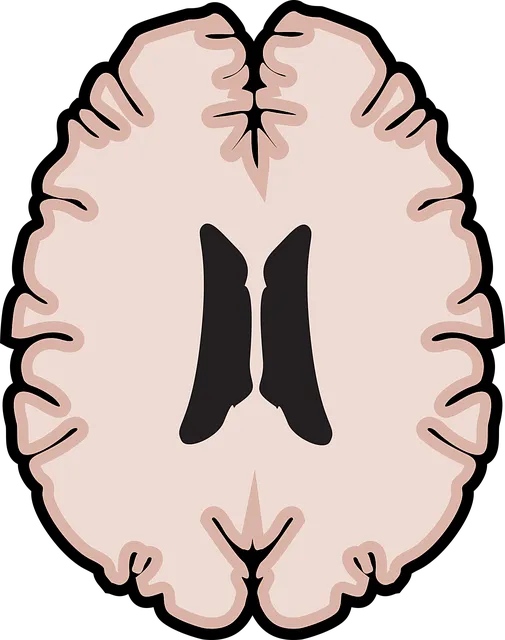Arvada Kaiser Permanente's mental health facility prioritizes cultural diversity in care delivery, integrating various perspectives and evidence-based practices sensitive to different cultural contexts. This approach aims to resolve conflicts arising from differing beliefs and values, improving patient outcomes and creating a supportive environment for individuals from diverse backgrounds. To enhance cultural sensitivity, the facility employs staff training in cultural competence, promotes self-care among staff, and implements empathy-building strategies, ensuring tailored services that promote positive mental wellness outcomes across cultures.
In today’s diverse society, cultural sensitivity is paramount in mental healthcare. This article explores best practices at Arvada Kaiser Permanente, a leading mental health facility, where professionals navigate the intricate web of cultural diversity. We delve into the challenges and barriers faced, offering insights into strategies that enhance cultural competence. By understanding the unique needs of various communities, Arvada Kaiser Permanente sets a standard for inclusive care, ensuring every patient receives personalized support within their specific cultural context.
- Understanding Cultural Diversity in Mental Healthcare at Arvada Kaiser Permanente
- Challenges and Barriers: Navigating Sensitivity in Clinical Practice
- Strategies for Enhancing Cultural Competence in Mental Health Facilities
Understanding Cultural Diversity in Mental Healthcare at Arvada Kaiser Permanente

Arvada Kaiser Permanente’s mental health facility recognizes that understanding cultural diversity is a cornerstone of providing effective care. In a world where mental wellness issues transcend geographical and cultural boundaries, it’s imperative to tailor treatment approaches to meet the unique needs of diverse populations. This awareness is crucial in preventing burnout among healthcare providers, who often encounter complex cases involving cultural nuances.
By integrating diverse perspectives and incorporating evidence-based practices sensitive to cultural contexts, Arvada Kaiser Permanente strives to resolve conflicts that may arise due to differing beliefs and expectations. This approach not only enhances patient outcomes but also fosters a supportive environment where individuals from all backgrounds feel heard, respected, and empowered to seek the mental wellness support they deserve.
Challenges and Barriers: Navigating Sensitivity in Clinical Practice

Navigating sensitivity in clinical practice at an Arvada Kaiser Permanente mental health facility presents unique challenges. One significant barrier is the potential for cultural misunderstandings between healthcare providers and patients from diverse backgrounds, which can lead to communication gaps and mistrust. These differences may stem from varied linguistic or non-verbal communication styles, personal values, or beliefs about mental health and wellness. For instance, some cultures may view mental illness through a lens of spiritual or familial responsibility, while others prioritize individual expression and privacy during therapy sessions.
Another hurdle is the lack of cultural competency training among healthcare providers, which can impact their ability to offer tailored care. Effective conflict resolution techniques become crucial in managing these disparities, fostering an inclusive environment, and enhancing patient outcomes. By participating in comprehensive training programs that focus on building confidence in navigating diverse cultural contexts, healthcare providers at Arvada Kaiser Permanente can better equip themselves to overcome these barriers, ensuring all patients receive sensitive, culturally competent mental health care.
Strategies for Enhancing Cultural Competence in Mental Health Facilities

In enhancing cultural sensitivity at an Arvada Kaiser Permanente mental health facility, a multi-faceted approach is key. One effective strategy involves training staff on cultural competence, ensuring they understand and appreciate the diverse backgrounds and beliefs of clients. This includes learning about different customs, values, and communication styles to foster genuine connections. Additionally, integrating self-care routine development for better mental health within the facility’s framework can improve cultural sensitivity. Encouraging staff to prioritize their well-being enables them to better support clients from various cultural backgrounds.
Empathy building strategies are another vital tool. Creating safe spaces for open dialogue and actively listening to clients’ experiences, perspectives, and concerns can significantly enhance cultural sensitivity. By implementing these practices, the Arvada Kaiser Permanente mental health facility can ensure its services are tailored to meet the unique needs of each individual, thereby promoting positive mental wellness outcomes across diverse cultures.
Cultural sensitivity is an indispensable aspect of quality care at Arvada Kaiser Permanente mental health facilities. By recognizing and addressing the challenges and barriers that arise from cultural diversity, practitioners can enhance patient outcomes and create more inclusive environments. Implementing strategies to improve cultural competence, such as diverse staff training and patient-centered approaches, ensures that everyone receives respectful, effective treatment tailored to their unique needs. This approach not only benefits individual patients but also fosters a stronger, more connected community within Arvada Kaiser Permanente and beyond.






